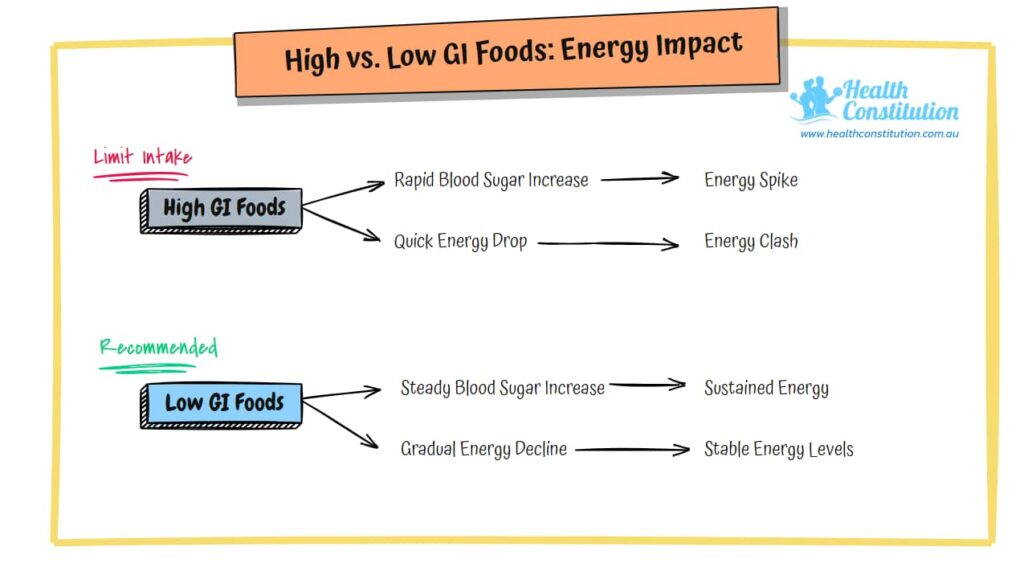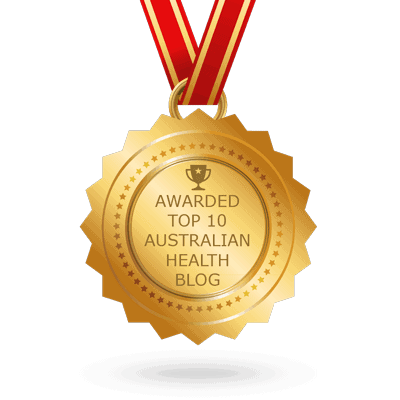We all know the feeling: that dreaded afternoon slump, the mid-morning energy crash, the exhaustion despite a full night’s sleep. While these energy dips may seem inevitable, the good news is, they are not! The power to unlock sustained energy throughout the day lies not in stimulants or quick fixes, but in the food you choose to fuel your body.
More than just calories, food provides the essential building blocks for energy production. By understanding the science behind food and energy, we can make informed choices that are beneficial to our vitality and well-being.
Understanding the Science of Food and Energy
Our bodies are intricate machines, fueled by the nutrients we consume. When we eat, food is broken down into its basic components:
- Macronutrients: Carbohydrates, fats, and protein
- Micronutrients: Vitamins and minerals
These nutrients are then absorbed into the bloodstream and used for various bodily functions, including energy production. The type of food we choose plays an important role in how efficiently our bodies utilise this fuel.

High Glycemic Index (GI) carbohydrates like white bread and sugary drinks are quickly digested, leading to a rapid spike in blood sugar. This initial surge is followed by a sharp drop, resulting in the dreaded energy crash and fatigue.
Complex carbohydrates found in whole grains, fruits, and vegetables offer a different experience. They are digested gradually, providing a sustained release of energy and maintaining stable blood sugar levels, preventing energy dips.
Healthy fats, particularly unsaturated fats from nuts, seeds, and olive oil, are another key player in sustained energy. They provide a longer-lasting source of fuel and promote satiety, preventing overeating and subsequent energy crashes.
Protein is vital for building and maintaining muscle tissue, which plays an essential role in energy metabolism. Protein also helps regulate blood sugar levels, contributing to stable energy throughout the day.
Micronutrients, including iron and B vitamins, are essential for numerous bodily functions, including energy production. Deficiencies in these micronutrients can lead to fatigue and low energy levels.

Strategies for All-Day Energy
Now that we understand the science behind food and energy, let’s explore practical strategies for incorporating healthy eating habits into your daily life:
1. Prioritise Complex Carbohydrates: Choose whole grains, fruits, and vegetables as your primary sources of carbohydrates. These foods provide a steady stream of energy and keep you feeling full longer.
2. Embrace Healthy Fats: Include nuts, seeds, avocados, and olive oil in your meals and snacks for long-lasting energy and increased satiety.
3. Do Not Neglect Protein: Ensure you consume adequate protein throughout the day. Lean meats, fish, eggs, legumes, and dairy products are excellent sources.
4. Stay Hydrated: Dehydration can significantly impact energy levels. Aim to drink plenty of water throughout the day to support optimal energy production.
5. Eat Regularly: Avoid skipping meals and snack frequently on healthy options like fruits, vegetables, nuts, or yogurt. This ensures consistent blood sugar levels and prevents energy dips.
6. Limit Processed Foods and Sugary Drinks: While these foods offer a quick energy boost, they often lead to crashes and fatigue shortly after. Opt for whole, unprocessed foods for sustained energy levels.
7. Embrace Personalisation: Remember, individual needs vary! Factors like age, activity level, and underlying health conditions influence your specific dietary requirements. Consult a registered dietitian for personalised guidance and a tailored plan to improve your energy levels through diet.
8. Be Mindful and Experiment: Explore healthy recipes, find foods you enjoy, and incorporate them into your daily routine as well as practise mindful eating. Making healthy eating a sustainable lifestyle change is key to unlocking your full energy potential.

Embark on Your Energy Journey: Resources and Next Steps
Unlocking your full energy potential through healthy eating is an exciting adventure. To support you on this journey, I’ve gathered some valuable resources and outlined some next steps you can take:
1. Explore Personalised Resources
- Registered Dietitians: Consult a registered dietitian for personalised advice and a tailored plan based on your specific needs and preferences. They can help you navigate dietary challenges, address underlying health conditions, and ensure you’re consuming the right nutrients for your energy goals.
- Online Tools: Use online tools and calculators to track your food intake, monitor energy levels, and identify areas for improvement. Examples include MyPlate by the USDA and MyFitnessPal.
- Nutrition Apps: Explore mobile apps that offer personalised recipes, meal plans, and food-tracking features. Popular options include Yummly and Mealime.
2. Join a Community
- Support Groups: Connect with online or local support groups for individuals seeking to improve their energy levels through healthy eating. Share your experiences, ask questions, and motivate each other on your journey.
- Online Forums: Participate in online forums focused on nutrition and energy optimisation. This allows you to learn from other individuals’ experiences and gain valuable insights.
- Social Media: Follow the social media accounts of registered dietitians, health coaches, and food bloggers for daily inspiration and tips.
3. Experiment and Celebrate Your Progress
- Try New Recipes: Explore diverse cuisines and experiment with healthy recipes that incorporate the strategies discussed. This keeps your meals exciting and prevents boredom.
- Listen to Your Body: Pay attention to how your body responds to different foods and adjust your diet accordingly. Identify what fuels you and what leaves you feeling sluggish.
- Celebrate Your Achievements: Recognising your progress, no matter how small, is great for maintaining motivation. Celebrate your successes and share them with your support network.
Unlocking your full energy potential is a journey, not a destination. Embrace the process, enjoy the delicious world of healthy foods, and celebrate your progress. With every step you take, you are moving closer to a life brimming with energy and vitality.
- Who Should (and Shouldn’t) Take Probiotics? - 16 November 2024
- How to Choose the Right Probiotic - 16 November 2024
- Prebiotics vs Probiotics: The Dynamic Duo of Gut Health - 16 November 2024
